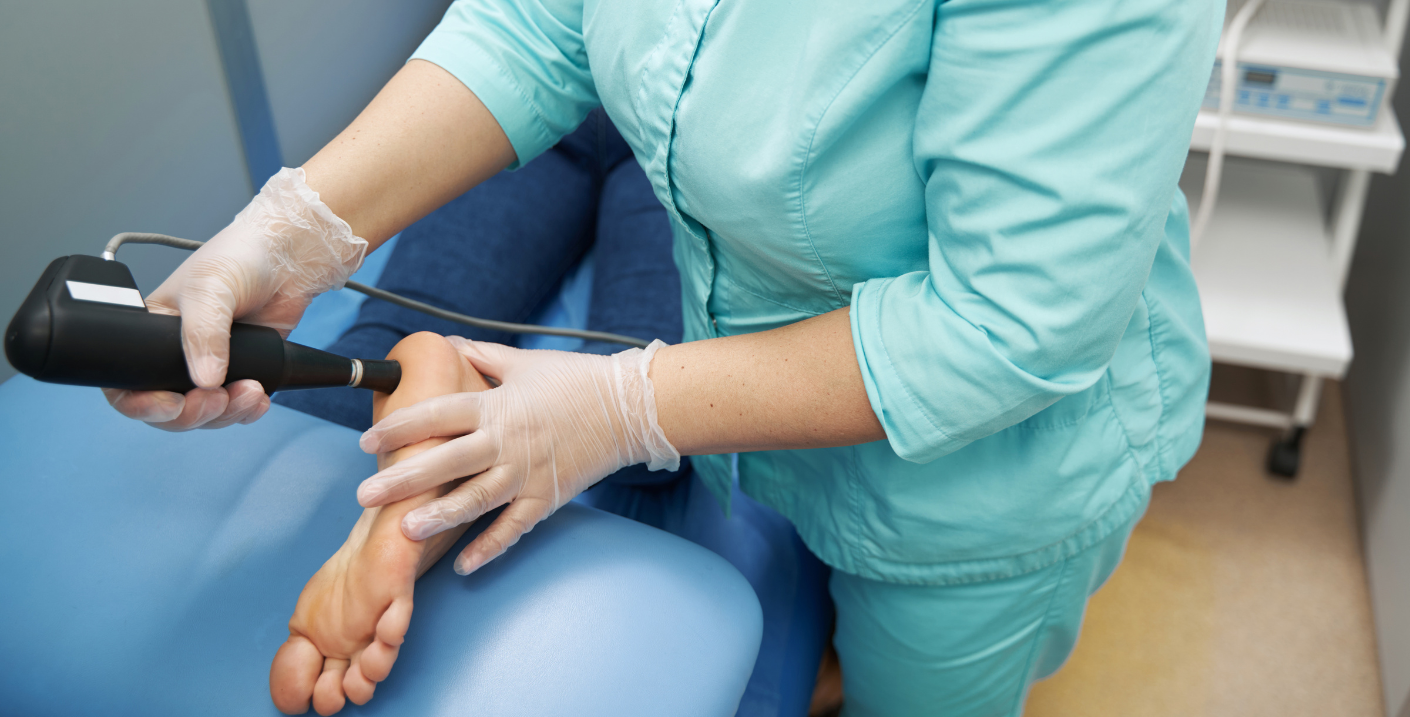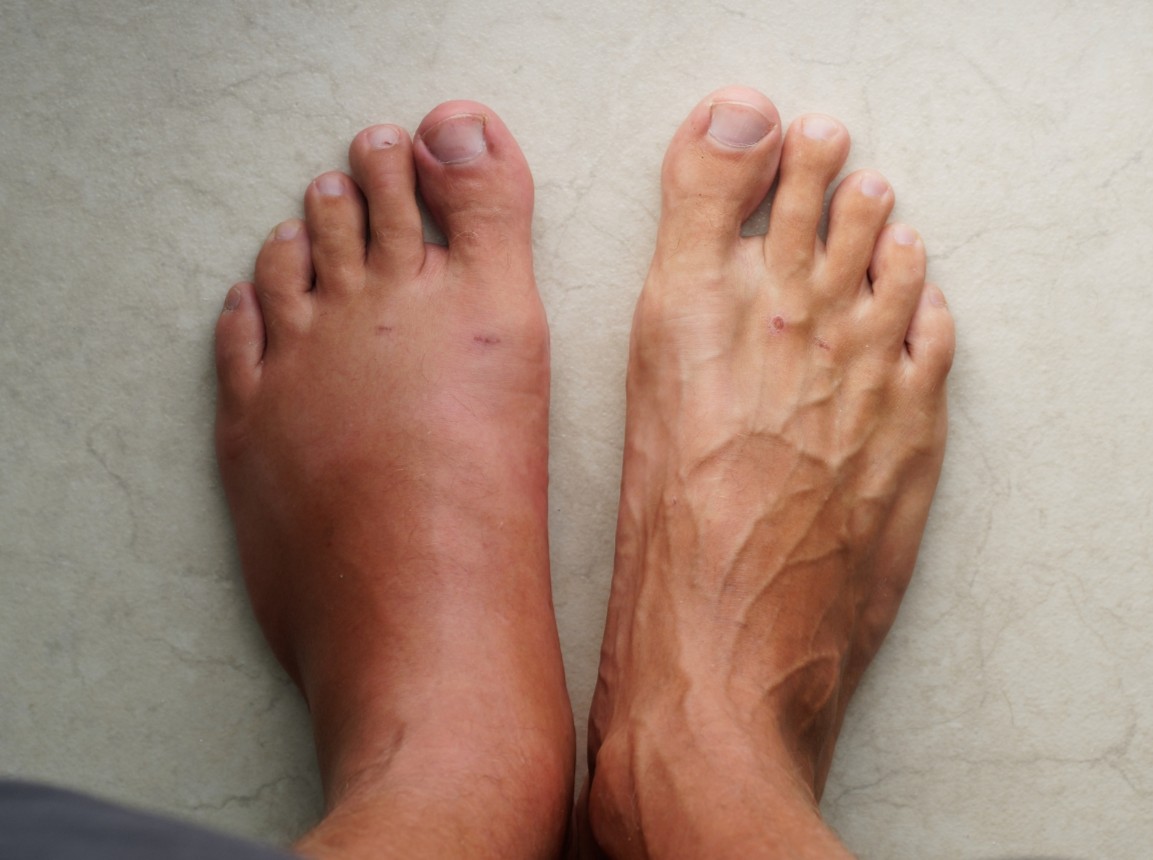

Here at Perform Podiatry, it’s important to us to not only use an evidence-based treatment plan to help you get the best outcomes for your foot and leg pain, but to help you see the best results in the shortest time by using innovative podiatric technology. That’s the reason we’ve invested in shockwave treatment - alongside other treatments like laser to help relieve pain and inflammation.
This is a fantastic question - and one that’s important to ask when any clinic introduces a new product or service. Shockwave has actually been extensively used for almost 30 years in the medical setting - so while it may be new for our clinic, it is currently being used extensively by podiatrists and physiotherapists around the world.
To answer your question - yes, there is a multitude of research that shows the efficacy of shockwave in helping support healing and repair of muscles, tendons, ligament and bone injuries. We’ll describe some below. Having this data and evidence was incredibly important for Hanan and our team to make the decision to offer shockwave in our clinic, and we’re extremely satisfied and proud with the results we’re seeing.
In a nutshell, shockwave uses soundwaves to stimulate the body’s natural healing and repair process. The device has a handpiece that is pressed against the skin by your podiatrist, and when this happens (over a specific region where tendon or tissue damage is present), the acoustic waves penetrate down and produce its beneficial effects. These include increasing the blood flow to the area, and stimulating the production of both growth factors and stem cells, which play important roles in helping repair the damage, as well as growing new blood vessels in the area. Shockwave also works to reduce the inflammation markers in the targeted area, which means that our patients experience less pain and more comfortable movement - with these effects starting pretty quickly.
So what can you expect with shockwave? While we’ve already shared an overview of our podiatry shockwave service here, here’s a look into the studies and clinical evidence surrounding shockwave in the areas our podiatrists practice in, so you can better understand the benefits you may stand to gain by adding shockwave to your rehabilitation plan.
If you have an injury to your Achilles tendon, we have some good news. Shockwave has repeatedly demonstrated good results for both new (acute) injuries, as well as ongoing chronic injuries that have been problematic for our clients for over three months - or even those that keep coming and going over many years. When we look at the research and data:
At the end of 2021, a large systematic review came out that evaluated the best management approach to pain at the bottom of the pain. It reviewed 51 trials that included 10 different methods of treatment - with shockwave being one of them. The results were that radial shockwave can and should be recommended to help with first-step pain in both the short-term and the long-term. The other therapies that were found to be very helpful in managing heel pain were stretches, taping, patient education and custom foot orthotics - all of which we offer here at Perform Podiatry, too.
When it comes to knee pain, the research is also promising, although the knee has been studied less extensively.
There’s a large, growing body of evidence for how shockwave is helping people get better outcomes for their foot and leg pain, faster. Our patients are loving the results they’re experiencing so far, and so are we - and we’ve been doing this for decades.
Making an appointment for shockwave actually starts with having an assessment for your pain and injury to understand your diagnosis and why your injury has occurred. From here, we’ll discuss your treatment options, and if this includes shockwave.
You can book your first
appointment online here,
or call us on (09) 523 2333 to speak with our receptionist team.

Valentine’s Day is about love, appreciation, and thoughtful gestures but let’s be honest, most gifts don’t last longer than a week. This year, choose something different. Choose a gift that offers comfort, confidence, and real care: a Medical Pedicure.

We’ve all had those days — you come home after hours on your feet, kick off your shoes, and notice your ankles look puffier than usual.
Swelling in the feet, ankles, or legs (known medically as edema) isn’t always a reason to panic. It can be as simple as a
salty lunch or a long flight.
But what if it’s happening more often — or seems to be getting worse? Swelling can sometimes be a sign of something more serious. Here’s
what could be going on and when to check in with your doctor.
Keeping your family on their feet and helping them to walk, run, play and exceed their goals is why we love getting up in the morning.
Ground Floor, One Health Building
122 Remuera Rd, Remuera
Auckland 1050, New Zealand
| MON - FRI | 7:30am – 6:30pm |
| SAT | 8:30am – 4:30pm |
| SUN | Some availability |
Make an Appointment
Online Schedule
Our virtual receptionist is available 24/7 to help with general questions, booking requests, and clinic information, even when our team is busy, or it's after hours.
Whether you're calling us or using our website, you'll get fast assistance any time of day. And if your query needs a personal touch, a member of our team will follow up as soon as possible.
If you’d like to see a podiatrist who speaks your preferred language, just give us a call and we’ll help you book.